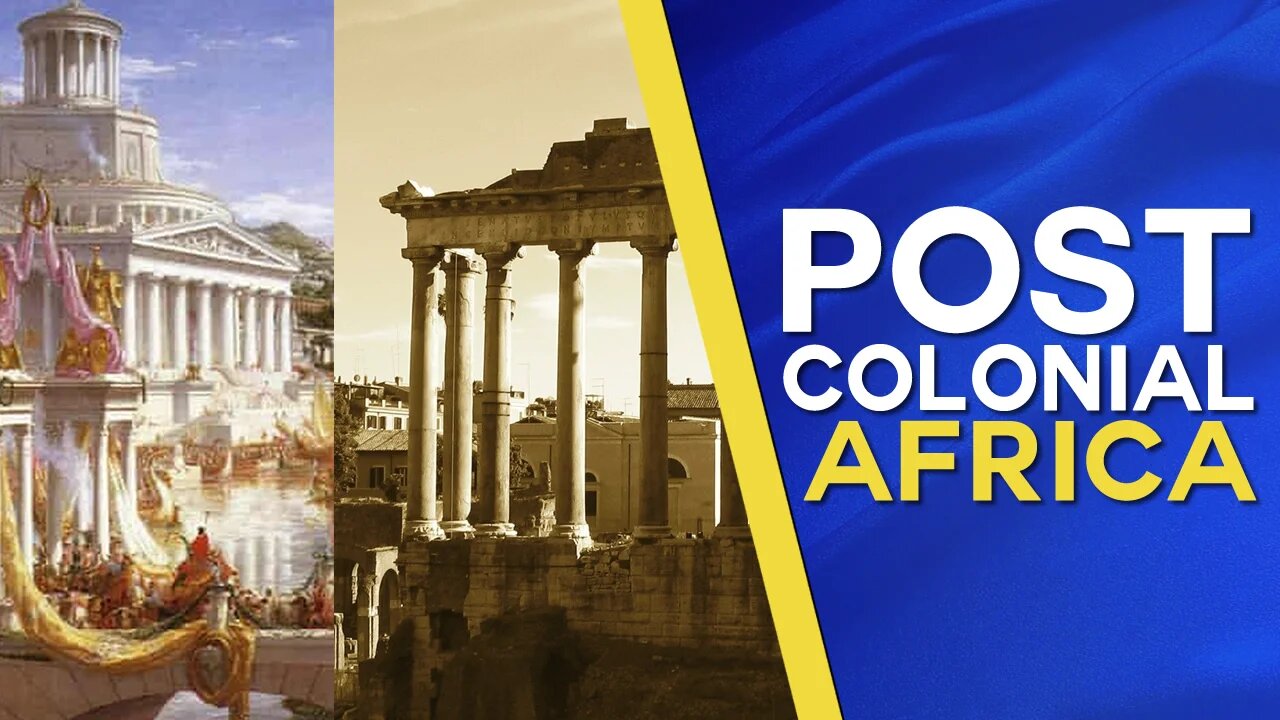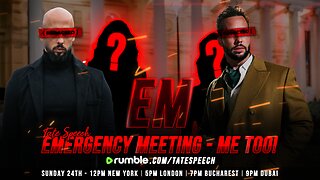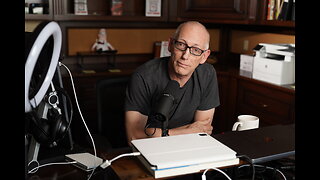Premium Only Content

Post-colonial Africa is similar to post-Roman Europe
As an extension of the revealing series 'Congo Hold-up', Marc Reynebeau ('In Congo it is still like the old days', De Standaard, 1 December) sees similarities between the Belgian colonial administration until 1960 and the corrupt Congolese administration since then. In doing so, he cuts quite a few curves very narrowly, according to author and journalist Peter Verlinden. In his new book, Congolese testify about the colonial period they experienced themselves and they also make a comparison between then and now.
There is no doubt that “colonialism” was a form of “occupation”. Not even the many dozen Congolese with whom I was allowed to have long conversations about 'then and now' over the past fifteen years. They had consciously experienced the colonial era as adolescents or adults themselves. No matter how great the nostalgia for 'le temps des Belges' when the roads were maintained, wages paid on time, schools and hospitals were free, safety was guaranteed everywhere ... nobody wants to go back to those colonial times. But to the good sides of it, not to the humiliations, to the time when Congolese were second-class citizens in their own country, structurally oppressed and dependent on the good or bad character of their Belgian bosses.
Equally unanimous is the bitter criticism of its own leaders since independence: 'If I can choose to work for a Congolese boss or for a Belgian one, I'd rather work for a Belgian one'. The anger about the dilapidated public facilities, the collapsed social security and the unaffordable schools for many is echoed everywhere, more than sixty years after independence.
Security vs mafia
It is true that colonial companies in particular were able to enrich themselves in Belgian Congo thanks to cheap labor and raw materials, in accordance with the legislation and international regulations at the time. Yet my Congolese witnesses prefer to refer to the fact that at the time they were at least paid correctly, including all social benefits, but indeed without any say in the governance of their own country.
In the same breath, most add that they do not have that participation today and, moreover, are no longer paid correctly and have lost all social security. The certainty of colonial paternalism has been replaced by the uncertainty of a mafia system: only a small elite gain access to the state's pots. The journalistic investigation 'Congo Hold-up' has made this clear once again, although this has not been news for the Congolese in Congo for a long time. They did not need the Western investigative journalists for that.
Did the Congolese leaders then take inspiration from the colonial government system to develop their corrupt government, from Mobutu over father and son Kabila to now also Tshisekedi? And are 'the Belgians' partly responsible for today's misery in Congo? At least the Congolese on the ground do not see it that way. Today's political elite is responsible for its actions and must answer to its own people, which it does not do. This does not alter the fact that most witnesses are deeply disappointed with the Belgian policy towards these Congolese leaders since independence, even more than with the Belgian colonial administration that is far behind and cannot be redone. They expect Belgium to help end mismanagement, corruption and human and economic tragedies and not keep rolling out the red carpet for one unelected president after another. Today, Belgium is all too often on the side of the corrupt leaders and not of the Congolese people. That makes many Congolese in Congo angry. Much more than the memory of the colonial past, even if they have experienced that time themselves.
'Decolonize'
If we really want to understand why Congo is what it is today, including corruption, then it is urgent to stop focusing so stubbornly on (almost) exclusively the colonial past. The Congo Special Parliamentary Commission is also threatening to do so, incited by the loudest voices of the young Congolese diaspora, a number of academics and opinion makers. On the contrary, we need to look much broader and at the same time more deeply. It is urgent to 'decolonize' our view of the former colonial areas.
Because these countries also have their own cultures and deep-rooted traditions that have not always been affected by only half to three quarters of a century of colonization. In the meantime, they have been independent again for longer than they have ever been colonized. The colonial past is just one more element of their individuality.
-
 LIVE
LIVE
Tate Speech by Andrew Tate
6 hours agoEMERGENCY MEETING EPISODE 93 - ME TOO!
4,394 watching -
 LIVE
LIVE
FRENCHY4185
1 hour agoPRESTIGE AND CAMO GRIND : BLACK OPS 6
551 watching -
 1:29:47
1:29:47
Real Coffee With Scott Adams
2 hours agoCoffee with Scott Adams 11/24/24
5.89K4 -
 13:52
13:52
Hershberger's Kitchen
13 hours agoTwo Delicious Dip and Spread Recipes to Try, Inspirational Thought
1.27K1 -
 LIVE
LIVE
Sacred Sage
4 hours agoDaz3D: Attempting to Finish Zoe Conversation!
112 watching -
![[Stream #19 ] Gaming, Chatting, you know the drill!](https://1a-1791.com/video/s8/1/9/o/E/e/9oEeu.0kob-small-Stream-Sour-Pickle-100-Foll.jpg) LIVE
LIVE
OneRandomDolly
2 hours ago[Stream #19 ] Gaming, Chatting, you know the drill!
474 watching -
 11:07
11:07
TimcastIRL
1 day agoElon Musk Suggests He’ll BUY MSNBC, Joe Rogan Will REPLACE Rachel Maddow
38.8K45 -
 34:24
34:24
The Rubin Report
20 hours agoFormer CEO: The Aftermath of Vice Media & What's Next for Mainstream Media | Shane Smith
58.2K12 -
 DVR
DVR
tacetmort3m
1 day ago🔴 LIVE - BECOMING THE UNTOUCHABLE (RADIATION WHO?) - STALKER 2 - PART 3
17.1K3 -
 16:05
16:05
China Uncensored
15 hours agoAnother Car-Ramming Strikes Outside a Chinese School!
11.6K12